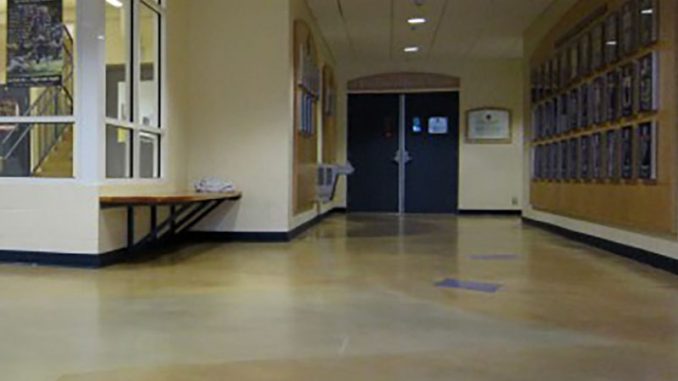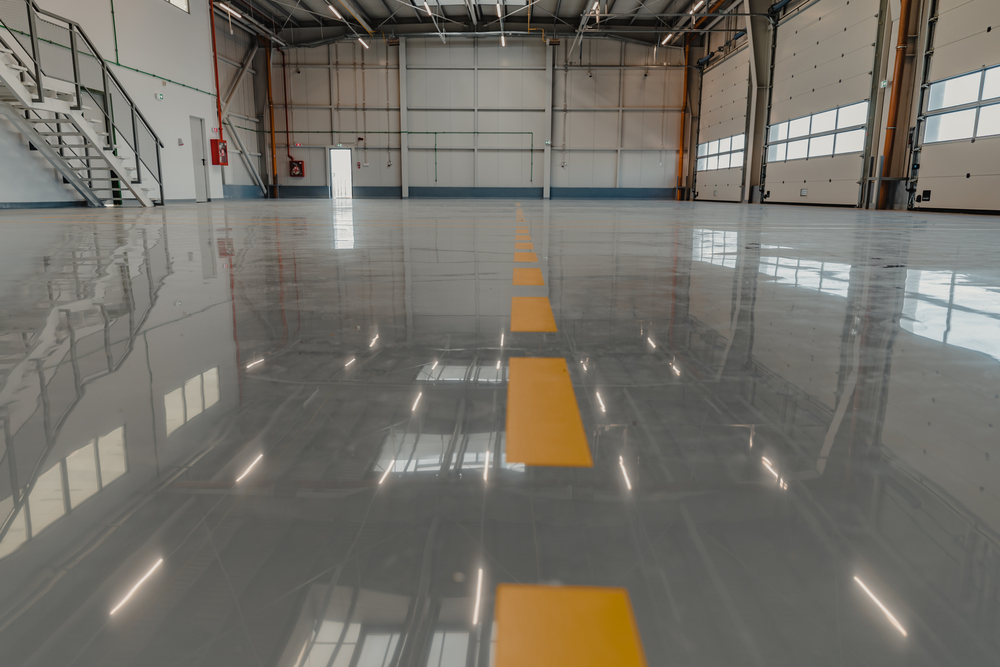
Epoxy vs. Urethane Concrete Floor Coatings
People researching concrete floor coatings often wonder whether they should use an epoxy or urethane coating for their concrete floor. The answer in many cases, although not all, is using both! Each of these floor coatings works in a different way performs a different function and has advantages in particular applications. Both provide protection against chemical corrosion, wear, and damage.
Additionally, floor coatings are long-lasting and reduce replacement and maintenance costs. They also increase safety with non-slip surfaces. Urethane and epoxy coatings can increase light reflectivity by up to 300% which lowers utility bills, brightens the workspace, and improves employee morale. Epoxy concrete floor coatings function more as a floor priming/resurfacing method; whereas urethane is more of a wear surface protecting the epoxy. Here’s a brief summary of the two products:
Epoxy
Epoxy is an ideal product for resurfacing a concrete floor. Applications are as little as 2mls to as much as 80+mls thick depending on the underlying floor surface. It can build up an old, cracked, and pitted concrete floor and make it look brand-spanking shiny and new – and increase the floor’s light reflectivity by as much as 300%. It’s also a great way to add color to the workplace and/or use multiple colors to designate certain areas, walkways, use it for directional arrows or put a logo or other design right on the floor.
Epoxy concrete floor coatings don’t just make a floor look better; they actually protect the floor surface. Appropriate for retail, industrial, showroom, and public buildings, epoxy floor coatings are popular for a number of uses including labs, manufacturing plants, hospitals, schools, automotive, aerospace, galleries, showrooms, malls, big-box users, and many more. With proper preparation of the underlying concrete (which usually means diamond grinding rather than shot blasting) and expert installation for proper curing and bonding, an epoxy floor simply can’t be beaten. Certain formulations of epoxy concrete floor coatings meet LEED requirements for VOC limits, making this a “green” approach to creating a new floor.

Urethane
Polyurethane is not an adjustable thin film floor coating. Urethane is rolled out at 350 – 500 square feet per gallon, which translates to about 2 – 3ml in thickness — and there is no way to adjust that. Furthermore, urethane does not bond well to concrete, so it is not an ideal coating to apply directly to an existing concrete floor. However, urethane is an outstanding topcoat and sealer for most kinds of epoxy applied over concrete floor coatings.
Urethane mortars are ideal for the food and beverage industry. They provide seamless and smooth floor coating that is moisture and heat resistant. Urethane is also great in a lab or industrial setting because it can be chemical resistant. For companies seeking an ecological floor solution, 1st Rate Service USA offers both VOC-compliant and odor-free urethanes for many applications
Summary
In general, it is believed that the best approach is to use epoxy to build up floors and then urethane to seal and protect them. With urethane as a top coat over epoxy, the floor will outlast unsealed epoxy 3:1. With these floors, you will get excellent wear and abrasion results. However, every flooring customer’s needs are unique, depending upon the particular use and desired outcomes. That’s why 1st Rate Service USA believes in customizing concrete floor coatings for each individual application.
1st Rate Service USA has been working in the floor coatings industry for more than a decade. We believe that the epoxy/urethane combo for concrete floor coatings produces the best floor possible.
Epoxy vs. Urethane Concrete Floor Coatings by Liquid Floor Systems is licensed under a Creative Commons Attribution-No Derivative Works 3.0 United States License.
